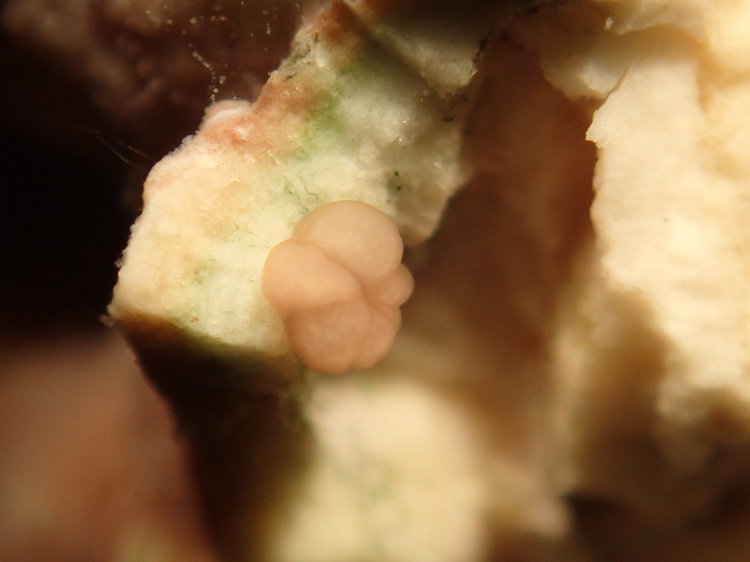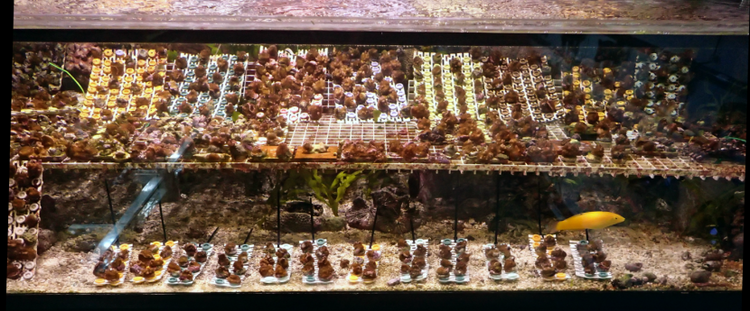Leitung

Prof. Dr. Peter Schupp
Coral Research
Aquarium Facility
Much of our coral research is done in our aquarium faciliy.
Ecotoxicology
read more about our coral ecotoxicology projects here
Chemical Settlement Cues

Corals procreate through planktonic planula larvae that can actively swim in the water column until they settle on a suitable substrate and undergo metamorphosis to become a coral polyp and eventually a new coral colony.
Finding the right spot for settlement is essential for larvae of sessile organisms. Chemical cues play a major role in the settlement process. Only when we understand the basic processes and gain better knowledge about the origin and the operating modes of these chemical cues, predictions about how these chemical signals may change in the future can be made.
See Dr. Matthias Kellermann
See Dr. Samuel Nietzer
Adaptability of juvenile corals

Corals are sensitive to heat stress. Rising seawater temperatures are a major threat to coral reefs and lead to massive beaching events worldwide. Adult corals have a small range of temperature tolerance, however we know that diverse reefs exist in areas with naturally high temperatures.
Juvenile organisms often have a higher plasticity than the adults. During their juvenile stages, environmental factors can influence the underlying genetic programs and cause an adaptive response. Juvenile corals growing up under elevated temperatures might have the ability to adapt to a new thermal range due to genetic or symbiotic changes. In long-term experiments with juvenile corals of different species we assess this ability to potentially adapt to elevated temperatures within one lifecycle.
Sedimentation

Sedimentation due to construction or coastal runoff can be a lethal stressor for corals. Scientific studies have mainly addressed the impact on adult corals and embryogenesis. In a recent study, we could show that juvenile corals are much more sensitive to sedimentation stress than adult corals. Sediment loads that are considered to be too low to influence adult corals can be fatal for juveniles. The results obtained in this study should be taken into consideration for sediment management plans.
Coral reproduction

Experimental work on juvenile corals usually requires large numbers of coral recruits. We established low-tech methods for maximum output of coral recruits for scientific projects, reef restoration and possibly the ornamental trade. Our methods could significantly reduce negative impacts on local reefs and allow sustainable subsistence farming of scleractinians for the aquarium trade.
Read more about our coral spawning facility in WIlhelmshaven
Support our coral research
Coral Research Uni Oldenburg
IBAN: DE46 2805 0100 0001 9881 12

![[Translate to English:]](/f/5/_processed_/3/2/csm_ICBM-Logo-transparent-_91fe1c6774.png)